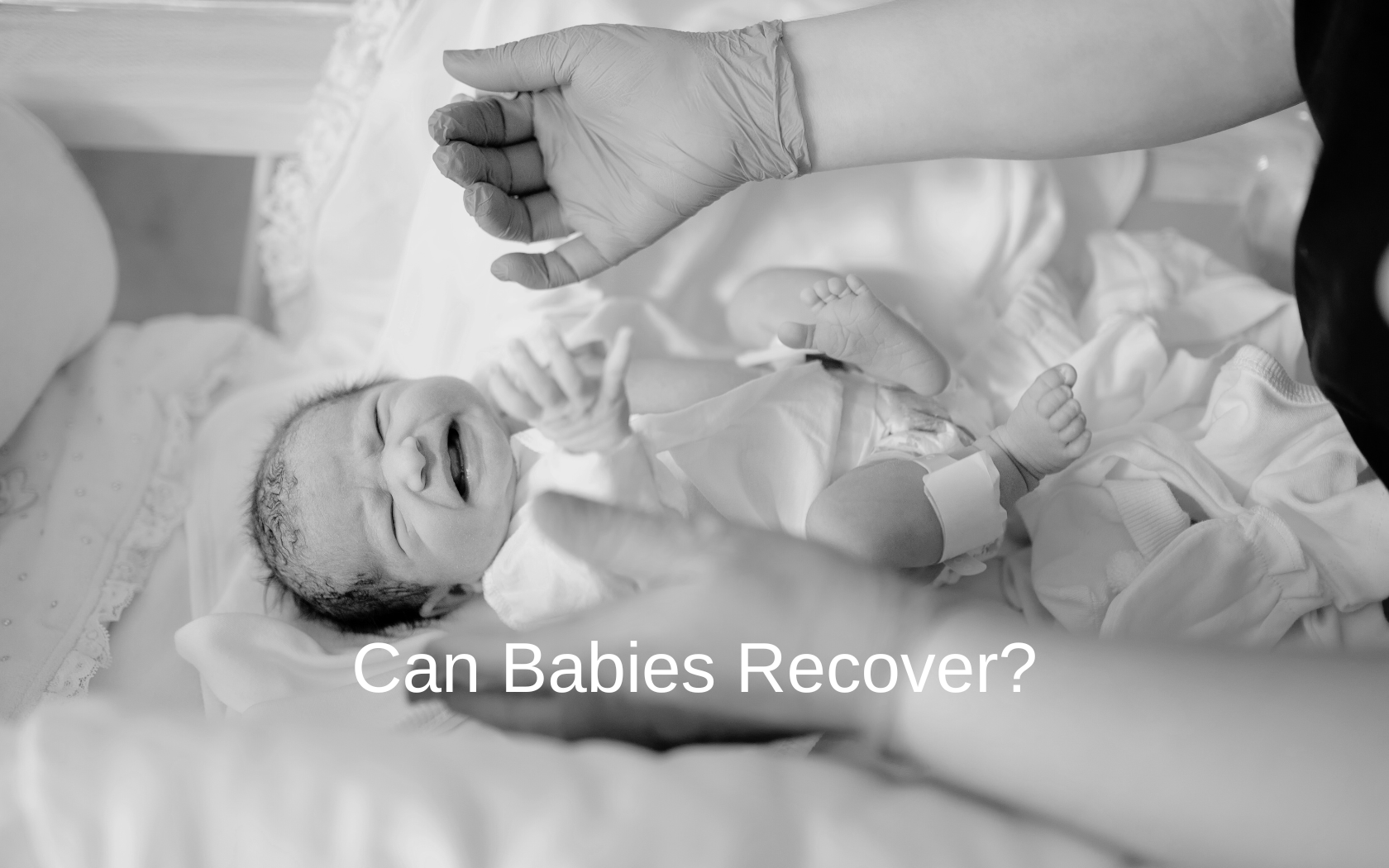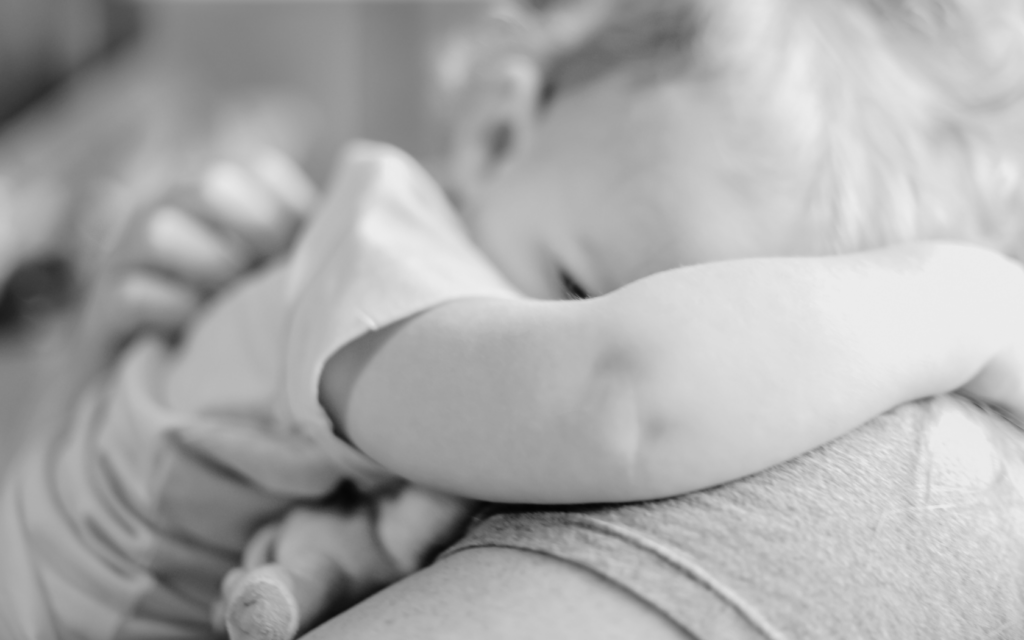Today, if you asked Lauren Strobel, “Can a baby recover from brain damage?” she’d respond with a resounding “Yes.” When she was born, she had no heartbeat. She wasn’t breathing. Doctors were able to revive her, but she had severe brain activity issues. Initially, her prognosis was poor, with little brain activity and no response to stimuli.
Then Lauren underwent cooling therapy, which involves lowering the body temperature to reduce brain damage. After days of persistent care and therapy, she started to show signs of improvement.
Suddenly, she could breathe on her own! She began to meet developmental milestones! By six months, she no longer needed medical interventions and was thriving, showcasing the power of early intervention and family support.

How Can a Baby Recover from Brain Damage?
Have you ever seen a lizard regrow its tail? Obviously, humans can’t grow back limbs. But you’d be surprised to know just how “flexible” and “adaptable” the human body can be after an injury.
Take babies’ brains for example. They are very adaptable. This adaptability helps them develop new skills. It’s also handy for emergencies, such as when brain damage occurs. A damaged brain can actually adapt and compensate for injured areas.
So this is why it’s possible for a baby with mild brain damage to make a complete (or almost complete recovery). With proper medical care and therapy, a mild injury can heal over time.
For more severe brain damage, recovery can be more challenging. However, early intervention, physical therapy, occupational therapy, and speech therapy can improve outcomes and help the child reach their full potential.
What Factors Affect Infant Brain Damage Recovery?
A baby’s ability to recover from brain damage depends on three main factors:
- The severity of the brain damage
- The type (and location) of damage
- How quickly the baby receives treatment
Age also affects whether a baby can recover from brain damage or not. Younger infants have a greater capacity for neuroplasticity. This is because their brains are better at compensating for damaged areas.
There are many more factors that influence infant brain damage recovery. They include:
- The baby’s overall health
- Genetic factors
- Caregiver involvement
- Supportive environment
- Quality of medical care

Can Older Babies Recover from Brain Damage?
You might wonder, “Can a baby recover from brain damage if they’re older?” Yes, some older infants have survived and even thrived after brain injuries. Usually, it’s because they received advanced medical treatments right away.
For example, Eden Carlson, a two-year-old who nearly drowned in her family’s pool, was left with severe brain damage due to a lack of oxygen. Despite doctors’ grim prognosis, Eden’s parents sought hyperbaric oxygen therapy. This treatment, which involves breathing pure oxygen in a pressurized environment, significantly improved Eden’s condition. She began speaking, sitting up, and eventually walking again.
Treatment to Aid Infant Brain Damage Recovery
The best chance for a baby to recover from brain damage is early treatment (right after birth, or right after an accident.)
Here are some treatments being used and studied for infant brain damage recovery:
- Cooling Therapy: This treatment lowers a newborn’s body temperature to help stop brain damage caused by oxygen deprivation during birth. It works best when it’s applied right after a baby is born.
- Stem Cell Therapy: Some research suggests that stem cell therapy might offer potential benefits for brain repair.
- Hyperbaric Oxygen Therapy: This involves breathing pure oxygen in a pressurized room. It’s being studied for its potential to enhance brain healing.
- Surgery: Surgery might be needed in cases where there’s severe head trauma or a structural abnormality.
- Neuroprotective Drugs: These drugs aim to protect the brain cells from further injury.
Later on, a child might benefit from ongoing treatments, such as:
- Physical Therapy
- Occupational Therapy
- Speech Therapy
- Early intervention programs
- Nutritional support
- Medications
These methods can help children living with long-term brain damage improve and manage their symptoms. Cognitive issues or learning deficiencies don’t have to hold them back. Providing therapy and support during childhood can make a huge difference in the early years. In many cases, children affected by brain damage at birth can catch up to their peers.

Brain Damage Caused by Medical Negligence
Treatment is crucial for infant brain damage recovery. But it’s not free and can be extremely costly. If your baby’s brain damage resulted from medical negligence, you may be able to get compensation.
Brain damage caused by medical negligence occurs when healthcare providers fail to deliver the standard of care. This can happen during birth, resulting in conditions like cerebral palsy or developmental delays. Common causes include:
- Delayed delivery
- Improper use of medical instruments, like forceps
- Failure to monitor
- Not recognizing or mismanaging an emergency, like uterine rupture
- Misusing medications, like Pitocin
We’re dedicated to advocating for families like yours, who are determined to help their children recover from brain injuries. That’s why we offer free consultations. Call us to learn about the legal steps you can take.
Brain Damage Recovery FAQs
If a baby has severe brain damage, there will be recognizable signs and symptoms. These include a large forehead, unusual facial features, abnormal eye movement, and seizures. The infant might cry excessively and have trouble eating and sleeping.
If the brain damage is mild, there may be no way to tell at first. But parents might notice signs as the baby grows. For example, the baby might miss developmental milestones. They might have problems feeding, moving, sitting, and crawling. The symptoms can be behavioral, mental, or emotional as well. An older child might have trouble concentrating, talking, or remembering.
There isn’t a set amount of time where brain damage starts to happen. In general, going without oxygen for 3 to 5 minutes makes damage possible. Serious brain damage will happen after about 10 minutes. If oxygen deprivation lasts longer than that, the baby may pass away.
Yes, a head injury that happened while a baby was small could cause problems later on, even if the baby shows no signs of brain damage. That’s because baby’s brains aren’t fully developed when they’re born. Also, symptoms of brain damage sometimes show up later on. Even a mild injury can cause a child to have difficulties as they grow, such as problems walking, learning, eating, or talking.
Yes, a baby with a brain injury can still smile. Smiling in infants can be a reflex action, especially in the early stages of development. Reflex smiles aren’t necessarily a response to anything a baby sees or hears at that stage.
However, as babies grow, their smiles become more social. They start responding to their caregivers. Some babies with brain injuries don’t smile, laugh, or play because their neurological functions are impaired. At the same time, many babies with brain injuries do develop the ability to smile socially. It depends on the severity and location of their injury.




